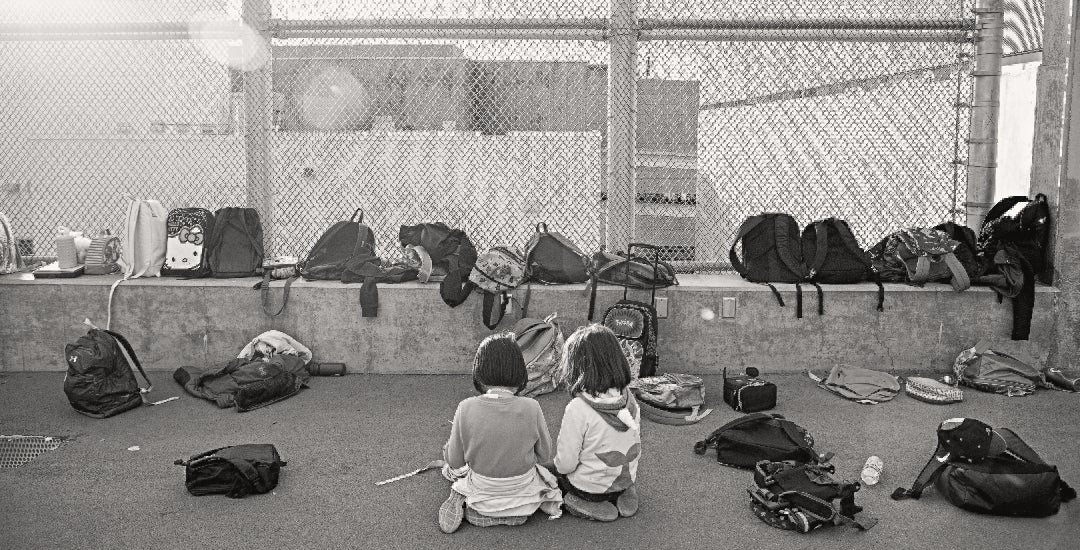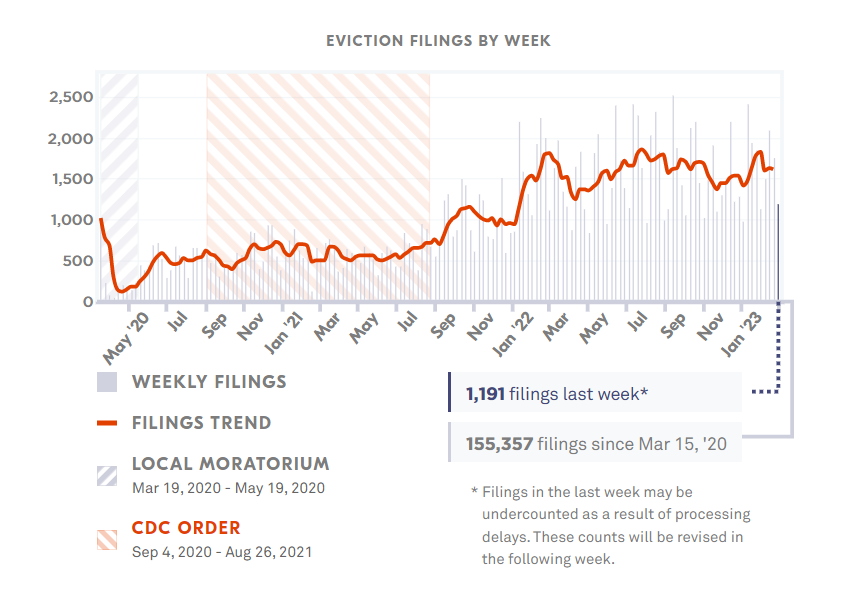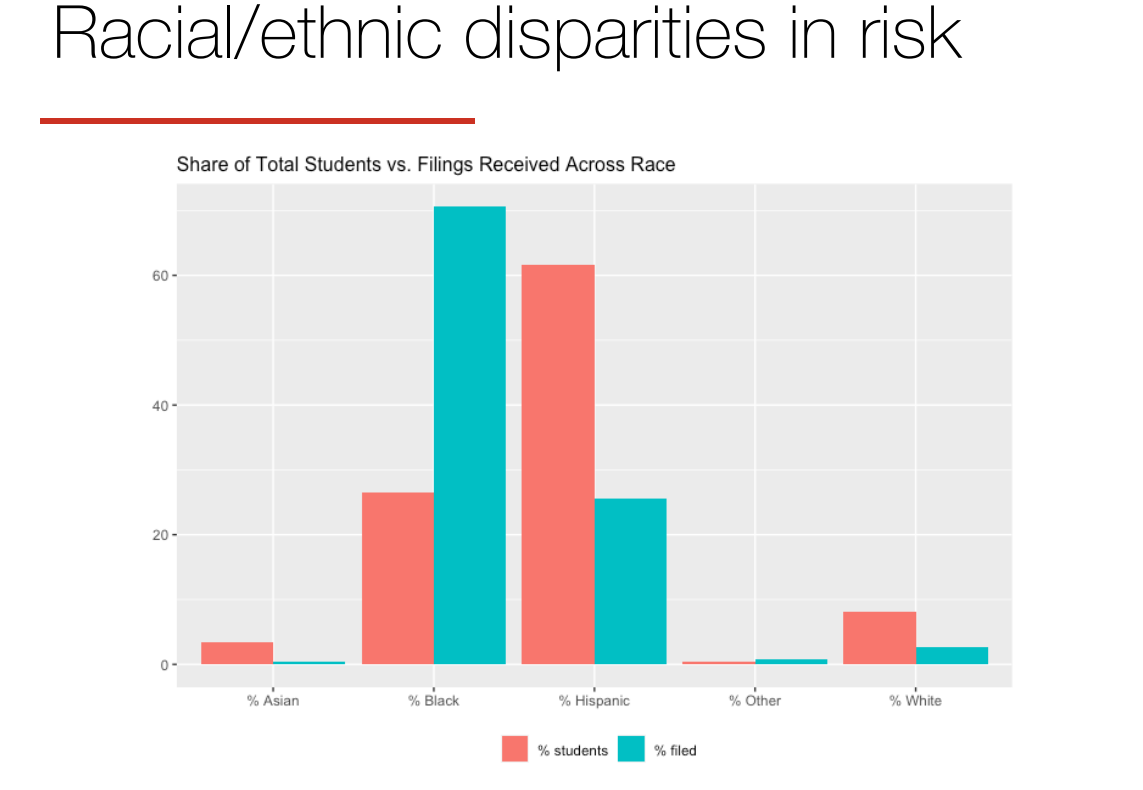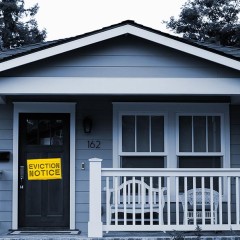Peter Hepburn, a research fellow at the Eviction Lab at Princeton University and an assistant professor of sociology at Rutgers University-Newark, told HISD staff in student support roles, wraparound services and others with multi-departmental responsibilities that close to 20,000 students faced the threat of eviction from 2002 to 2016.
With evictions in the area now being filed at record levels, even more students could be in this situation. After the lifting of national and statewide eviction moratoria during the COVID-19 pandemic, Harris County reached a historic high of 80,000 evictions filed in 2022, according data from Justice of the Peace Courts compiled by January Advisors. Going into the pandemic, Harris County was not an outlier on a national level, Hepburn said.
“Harris County is a typical case, and is right at the national average in terms of eviction rates,” Hepburn said. “But because it’s such a big place, with about 760,000 renter households, there are a lot of people at risk of an eviction filing. A good number of those turn into executed evictions. Every month from January 2022 onwards – those numbers have been above historical average. In Houston, we’re talking about filings early this year that are about 30% higher than what we saw before the pandemic. What we saw before the pandemic was a lot of cases being filed. These numbers have already surpassed the pre-pandemic baseline.”
Students of color enrolled in HISD are the most at risk of having an eviction filed against their parent or guardian, according to research by the Eviction Lab. The Eviction Lab also found gender disparities, with women being evicted more frequently than men, and that having children is a significant factor for eviction.
“We want to know how this is disrupting their lives,” Hepburn said. “How is it jeopardizing their educational careers? What further trauma does this entail? What are the effects of eviction on students' behavioral and academic trajectories — do their standardized test scores drop? Do we see an increase in absences or suspensions?”
The Eviction Lab reached out to school districts across the country, seeking data about school enrollment that could be matched to eviction filing records. With the help of the Kinder Institute’s Houston Education Research Consortium, part of the project involved the development of an algorithm that provided matches with a high degree of certainty of students living in a household under the threat of eviction from 2002-2016.
“Families and children are bearing the brunt of this crisis,” Hepburn said. “We found about 27,000 instances of these matches which is about 17,400 students. Some of them were just filed against more than once. This is almost certainly too small a number. There are probably some students whose parents were filed against, and we just aren’t able to make the match. If anything, that shifts the results in a conservative direction, and we’re likely understating the effect of eviction.”
Initial results the Eviction Lab shared with HISD was that 25% of students face repeated filings in a compressed time period. The typical length between multiple eviction filings is about three months, usually in the course of a single academic year. Over 70% of the students living in a household where an eviction was filed were Black. About 25% were Hispanic and less than 5% were white.
“There’s really an overrepresentation of Black students who grow up facing eviction filings,” Hepburn said. “When looking at the characteristics of students who go on to have a parent facing eviction, even before that filing goes through in the year prior, we find that relative to their peers who are never filed against for eviction, they tend to get suspended more often, they’re absent more often and they have lower standardized test scores. These students are already at a disadvantage before they face this period of housing instability.”
Courtesy The Eviction Lab at Princeton University
Hepburn said it was encouraging to speak with HISD staff who are making a concerted outreach to students experiencing periods of housing instability.
“There’s clearly a well-developed system for addressing homelessness in HISD,” Hepburn said. “We know that there are more students who are at-risk of eviction than there are who are homeless. Eviction doesn’t immediately lead to homelessness in all cases, but that doesn’t mean that those moments of precarity and hardship aren’t real, and aren’t taking a real toll on those students. Finding ways to make sure that we know who those students are and we can provide them with the support they need would be a great start.”




